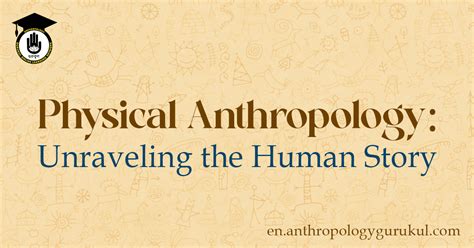## Introduction
Anthropology and history, two intertwined disciplines, delve deep into the human experience. Anthropology examines human societies, their cultures, and their development, while history investigates the past through the lens of written records and other sources. This article explores the distinct characteristics, methodologies, and applications of these fascinating fields, contrasting their perspectives on our collective past and present.

## Anthropology: Exploring Human Diversity
Anthropology, derived from the Greek words “anthropos” (human) and “logos” (study), encompasses the study of human diversity and cultural practices across time. Anthropologists immerse themselves in different societies, observing and participating in their everyday lives to gain a holistic understanding of human behavior and the complexities of social systems.
## Key Components of Anthropology
1. Cultural Anthropology: Explores the beliefs, values, norms, and practices that define different cultures.
2. Biological Anthropology: Investigates human evolution, genetics, and physical adaptations.
3. Linguistic Anthropology: Examines the structure, use, and evolution of human languages.
4. Archaeology: Uncovers and interprets the material remains of past societies, providing insights into their lives and interactions.
## Methodology in Anthropology
Anthropologists employ various methods to gather data, including:
1. Participant Observation: Researchers live among and observe people within their natural settings.
2. Ethnography: In-depth descriptions of specific cultures based on extensive fieldwork.
3. Interviews: Structured or informal conversations to collect qualitative data from individuals.
## Applications of Anthropology
Anthropological insights find practical applications in fields such as:
1. Cultural Sensitivity: Understanding cultural differences promotes cross-cultural communication and cooperation.
2. Health and Development: Research on health beliefs and practices aids in designing effective healthcare interventions.
3. Education: Anthropologists collaborate with educators to enhance cultural understanding in classrooms.
## History: Unveiling the Past
History, derived from the Greek word “historia” (inquiry), examines the past through the analysis of written records, artifacts, and other sources. Historians aim to reconstruct events, explain causality, and provide interpretations of human experiences.
## Key Aspects of History
1. Political History: Focuses on the development of political structures, institutions, and events.
2. Economic History: Investigates the evolution of economic systems, markets, and production.
3. Social History: Examines the lives of ordinary people, their social interactions, and societal structures.
4. Intellectual History: Explores the history of ideas, philosophies, and scientific advancements.
## Methodology in History
Historians employ critical analysis and interpretation of sources to construct historical narratives. Key methods include:
1. Archival Research: Exploration of primary sources such as letters, diaries, and government documents.
2. Oral History: Collecting and interpreting stories and accounts from individuals who experienced past events.
3. Artifact Analysis: Examination of physical objects to uncover information about past cultures and societies.
## Applications of History
Historical knowledge serves various purposes, including:
1. Understanding the Present: Past events shape present circumstances, and their lessons can guide contemporary actions.
2. Preserving Heritage: Historical monuments, artifacts, and documents safeguard our collective memory and cultural identity.
3. Policymaking: Historical research informs policy decisions by providing context and insights into past policies and their outcomes.
## Comparative Table: Anthropology vs History
| Characteristic | Anthropology | History |
|—|—|—|
| Focus | Human societies, cultures, and diversity | The past through written and material sources |
| Methodology | Participant observation, ethnography, interviews | Archival research, oral history, artifact analysis |
| Time Scale | Present and past | Primarily the past |
| Sources of Data | Human behavior, observations, cultural artifacts | Written records, archives, physical remains |
| Applications | Cultural understanding, cross-cultural communication, health interventions | Policymaking, cultural preservation, understanding the present |
## Convergence and Collaboration
While distinct in their methodologies, anthropology and history often intersect and collaborate to provide a comprehensive understanding of human experiences. Anthropologists and historians share a commitment to empirical research, critical thinking, and the interpretation of human behavior. Their insights complement each other, enriching our knowledge of the past, present, and future.
## Innovations in the Field
Recent advancements in technology and research methods have expanded the capabilities of anthropologists and historians. Digital tools, such as data visualization and social media analysis, offer new avenues for data collection and analysis. Interdisciplinary approaches, such as bioarchaeology and digital history, combine anthropological and historical perspectives to gain novel insights into human societies.
## Addressing Customers’ Perspectives
Understanding the perspectives of our customers is crucial in the development of innovative applications.
## Pain Points
* Difficulty accessing and interpreting historical and anthropological data
* Lack of interoperability between different data sources
## Motivations
* Desire for a comprehensive understanding of human experiences
* Need for evidence-based decision-making in various fields
## How It Matters
* Enhanced cultural sensitivity and communication
* Improved health and education outcomes
* Informed policymaking and cultural preservation
## Benefits
* Data integration and visualization tools for data analysis
* Interdisciplinary approaches for novel research perspectives
* Open-access databases and resources for wider dissemination of knowledge
## Conclusion
Anthropology and history, two pillars of human inquiry, offer distinct perspectives on our collective experiences. Anthropology’s focus on cultural diversity and social interactions complements history’s exploration of the past through written records and material remains. By combining their methodologies and insights, we gain a deeper understanding of human societies, their development, and the challenges and opportunities they face. Technological advancements and interdisciplinary collaborations continue to fuel innovation in these fields, enhancing our understanding and shaping the future of human knowledge.
